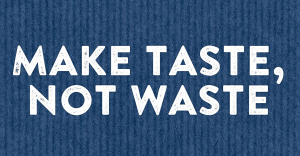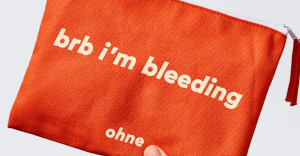Feelings are priceless: Why brands need to deliver even more in a cost-of-living crisis
Well before the latest hikes in inflation and the cost of living, consumers had been taking an increasingly cynical view of brands and the corporations that own them. The obvious answer is to think ‘value’ but how do we avoid a ‘race to the bottom’? The answer lies in a deep reappraisal of the fundamental role of brands in our consumer culture.
Yet again there’s widespread anxiety in the air. The exponential rise in household living costs being felt across the globe has lots of contributing causes: the post-Covid effect on supply chains, general economic slowdown and inflation, and the dramatically reduced supply of Russian gas, the direct consequence of the war in Ukraine.

The numbers tell a worrying story: 33% of UK households say they will be cutting their expenditure in 2022, 43% say they won’t be able to save this year and 30% have said they have struggled to pay their mortgage at some point this year (ONS, 2022). You shudder to think what the mood of the nation will be when autumn sets in and the heating needs to go on. And we haven’t even mentioned politics.
When it comes to brands and shopping trends, the immediate response is ‘value, value, value’. For brand owners faced with their own sky-rocketing costs, ‘cost engineering’ seems like the obvious tactic and we are already witnessing ‘shrinkflation’. The value pack encourages bulk buying for unit cost savings whilst the supermarket private labels and price roll-backs all try to convince us that ‘every little helps’. For consumers, ‘binary shopping’ is about to reach a whole new level as commodity products are carefully distinguished from the brands worth paying more for. For anyone who doesn’t want to join the race to the bottom, the critical question is: ‘What is worth paying more for?’

Meaning is the only thing that differentiates a brand from a commodity. Consumers will always, and have always, spent their hard-earned cash on the stuff that means something to them. The teenager saves for that designer garment that will gain them acceptance at a higher level. And despite any cost-of-living crisis, there are brands that consumers simply won’t compromise on.
Brand purpose might be a much used and abused term but it’s not going to go away just because belts are being tightened. On the contrary, it’s more critical precisely because belts are being tightened. The ‘why’ we buy over the ‘what’ we buy has never been more important. That’s because ‘why’ is about meaning, meaning is all about feeling and right now our feelings are seriously heightened.
We can talk ad infinitum about functional benefit and tangible ‘reasons to believe’ but emotion trumps logic every time, because how we feel affects what we think, how we behave and what we choose.
That’s because brands help satisfy our fundamental human needs. These needs are functional and emotional, simple and complex. From the physiological need for food and shelter to the need for a sense of belonging, the need for self-esteem and our need for self-actualisation – that sense of having achieved something meaningful with our lives. Brands can make us feel satisfied, empowered, free or optimistic about the future.
But consumers also now want something far bigger from brands and brand owners. In a recent UK survey, 62% of consumers said they wanted companies to take a stand on issues like sustainability and fair employment practices (IGD Shopper Confidence Index, 2022). And 81% of under-30s said they wanted companies to take a leading role in ‘confronting the challenges facing humanity’ (Kantar, 2021).

So now more than ever, when many people have less, brands need to connect emotionally. They need to mean more, and they need to do more, way beyond offering more product for your pound.
Brands need to feel more accessible. For skincare brand The Ordinary that’s about democratising and demystifying the category and offering salicylic acid for a fiver. Brands need to be more thoughtful. For Cadbury Duo that’s about a resealable pack that encourages more considered spending and eating. Brands need to be more resourceful. For Hellman’s Mayonnaise that’s about encouraging us to be more creative with what we’ve got in the fridge. ‘Make taste, not waste.’ For disruptor brand Ordo, it’s about quality oral care at a fair price and ‘more mouthwash less plastic’. And brands need to be more relevant. For femcare brand Ohne that’s about bringing some much-needed humour and attitude to a subject that’s been long under the shadow of embarrassment. ‘Yours hormonally.’

Whether it’s more connected, more intelligent, more beautiful, more playful, more uplifting, more transparent or more responsible, when people have got less, the simple but challenging dilemma is how to give them more. More of what speaks to the heart over the head. More of what matters. You simply can’t put a price on it.
To continue the conversation please email andrew.eyles@bluemarlinbd.com
